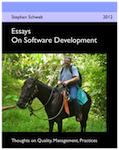Developing countries and immigration laws
Lately there has been a lot of frenzy about the change in visa and immigration law in Panama. While Panama offered a 90 day stay by default this is said to be reduced to 30 days on May 25th. Strangely no official websites of the Panamanian government is telling anything about that change. All information available still talks about the 90 days at present date.
Obviously each and every country has an intrinsic right to set whatever rules they feel appropriate. Some countries with an economy stronger than average are attractive destinations for people looking to better their lifes and it's understandable that their governments put rules in place in order to protect the local labor market, as their citizens probably expect just that from them. But what about developing countries?
I remember that Australia - although not a developing country in the common sense of the word - allows immigration based on the value the potential immigrant provides to the country. Australia seeks immigrants of certain professions that it lacks and that way improves the knowledge available in the country. They don't limit tourism neither business travel in any way as far as I know.
Now, if all the reports are true, Panama has decided to cut back on the maximum default stay for tourists and business people visiting the country allegedly in order to reduce the influx of illegal immigrants who are blamed for an increase in violent crime. By looking at the report about Authorized Consulted Visas it appears to me that the majority of these visas are being issued to Chinese citizens. The majority of requests for Residence Permits seem to be from Colombian and United States citizens. Colombians can enter Panama without visa and there is already a great number of businesses owned by Colombian immigrants.
It's quite common in Latin American countries for a large number of people to not enter the process of obtaining permanent residency. Instead they leave the country for a visa-run to a neighboring country, stay a couple of days or even only 24 hours there, and then come back for a new 90 days term. You can read more about this in some of links provided below.
But back to the original question. What impact can restrictive immigration laws have on a developing country? To answer that question one should look at the motives for someone to leave his home country and live in another. For people from poor countries that may be answered easily. But what's the motive for someone from a developed country (Europe, U.S., Canada, Japan)? All of these countries have good social systems. If you have bad luck, you will not starve. If you have bad luck in a developing country, you may find yourself without any help and even experience hunger. It is my perception that the primary motive for people from developed countries is to start something new by becoming an entrepreneur or to seek a place for retirement in a more relaxed and probably cheaper environment than at home. In the case of entrepreneurs the local economy will cleary benefit from the presence of these people, as they will inevitably create jobs and transfer knowledge by educating their new employees. Retirees have a positive impact on the local economy as well, but I believe it's more indirect and mostly in sectors like construction and health care. After all a retiree doesn't seek direct involvement in the local economy.
The new situation for Panama now seems to be that you are welcome as a real tourist visiting the scenic sites for less than 30 days (think of organized tours), as an investor (deposit 200,000 USD at the national bank to essentially buy your residence permit) or as a real retiree on a government pension and older than 65 years (that's the other change reported ). Update: apparently the age change for the pensionado visa did not happen. I confirmed this with my own lawyer as well.
That leaves potential entrepreneurs in a tricky situation. Before these changes (again, if all of that is indeed true) one could come to Panama for 90 days, explore, open a business and try out things, and then either request an extension or simply do a trip to any neighboring country and come back for another 90 days. The entrepreneur will probably schedule business trips accordingly and include a little vacation for his family members. All the while his doing in the country has a positive impact although he does not commit any money upfront. One should keep in mind that in this modern world not all entrepreneurs want to set up brick and mortar shops. That means they probably won't be eligable for something like the small-investor visa, which requires an investment of 40,000 USD in cash and at least three employees.
See "What do computer consultants, immigrants and Dominican fruit sellers have in common?" for some additional thoughts about small businesses and immigration.
Raising the bar for immigration or a one-size-fits-all approach seems to be a bad idea for a developing country from my point of view. I would rather suggest to follow Australia's example and make it extremely easy for skilled people from developed countries to apply their knowledge in new ventures to the benefit of the people. That way the level of knowledge in the general populace will raise and create over time a self sustaining economy leading the path to become a developed country.
Following links to other blogs with more details about the new regulations:
- May 29, 2007 30 Days For Tourist Visa
- May 29, 2007 Tourist Visas Now Valid For 60 Days Max
- May 29, 2007 Additional Information on the Visa Issue
- May 31, 2007 Tourist visa change frustrates many
- June 5, 2007 New change in tourist visa's not so bad
- June 5, 2007 Update on the 30-Day Tourist Visa Issue
- June 6, 2007 More 30 Day Visa Questions
- June 7, 2007 Tragedies On The Horizon
- June 7, 2007 Panama Private Pension Pensionado Age Change??
- Jun 7, 2007 Another Clarification on the Tourist Visa Issue
- Jun 8, 2007 panama tells tourists - go home!
The most current and reliable information about current regulations should be available from the National Directorate of Immigration and Naturalization. Unfortunately it may be that their website is not always up to date. On the other hand I do believe it is as they are publishing the results of each request processed online.
| Previous | 08 Jun 2007 | Next |
This article has been posted to social media sites. There might be comments. Just follow the links:








